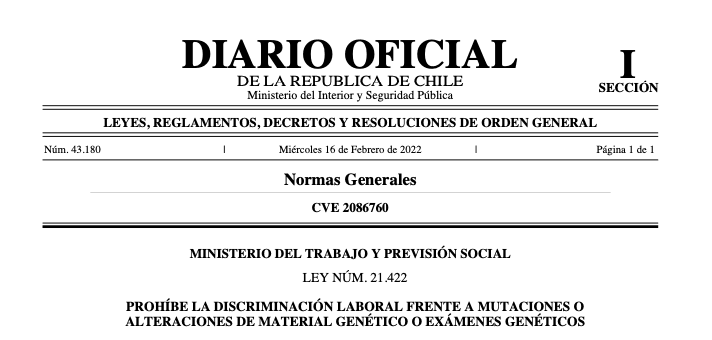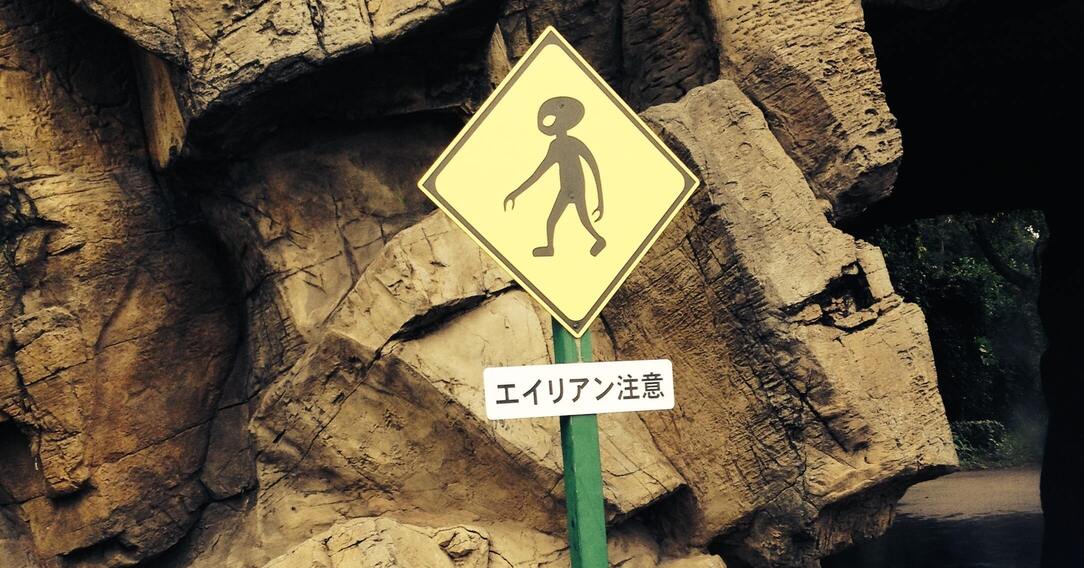Information is spreading on social networks that the Chilean government has adopted amendments to the country’s labor code, obliging employers to respect the labor rights of mutants and GM people. We decided to check if this is actually true.
In social networks And messengers spreads newsletter, telling about the new Chilean law. In it approved, that, according to the new amendments that came into force on February 16, 2022, labor discrimination against mutants and genetically modified persons is prohibited in the country. At the same time, the newsletter immediately indicates that Chile is a country with one of the highest vaccination rates.
The authors ask rhetorical questions: was it because the law was adopted because in the country “there are or soon will be a significant number of people who are no longer people, but transgenic or transhuman beings? How is it that there are genetically mutated or transhuman people among us?” They go on to claim that “experimental mRNA injections alter the human genome, that they are gene therapy and not a vaccine. COVID injections are mutagenic, meaning they permanently change a person's DNA.” The mailing also states that "if the spike protein's genetic code is integrated into a person's DNA, it is legally possible that people modified by it will be considered GMOs, which are patented and may be subject to a licensing agreement, the terms of which may be agreed upon without their knowledge."
In addition to the date of adoption, the newsletter also contains the number of the law and provides screenshots of its publication on the official website translated into English. Law No. 21 422 is valid posted on the state portal of the Library of Congress, as well as published in a state newspaper covering legislative news. Its title reads: “Discrimination in employment relations with respect to mutations, changes in genetic material, or genetic testing is prohibited.”

Moreover, the text of the law explains what is meant by discrimination in relation to mutations: an employer does not have the right to make decisions about hiring or extending employment on the basis of genetic tests that determine the risk of developing some pathologies in the future, or existing genetic diseases. For example, a high risk of genetically determined early-onset Alzheimer's disease cannot be a reason for a person to be refused employment. Even an already diagnosed but not yet manifested disease, for example Huntington's disease, cannot become a reason for refusal. The law also stipulates that an employer, if it offers genetic testing to candidates or employees, must pay for it itself, and in case of refusal of such testing, it does not have the right to force it or justify the decision to dismiss or refuse to hire.
The adopted law has nothing to do with the level of vaccination in the country: although it was adopted in February 2022, it was entered as a bill to the Council of Deputies back in 2011, that is, long before the new coronavirus pandemic began. In the text of the law in general there is no mentions of vaccination or coronavirus. At the same time, the proportion of people vaccinated with at least one dose in Chile is really high and amounts to almost 93%, and we are not just talking about adults - vaccinations have been available since the beginning of December 2021 approved for use by children from three years old.
However, it is important to note that vaccines against the new coronavirus infection do not create “transgenic or transhuman beings”, since the components of the vaccine, including mRNA, can't integrate into the human genome and begin to reproduce in the body. The genetic code of the spike protein is completely can't integrate into DNA. The only thing that can theoretically happen is that the adenoviral vector can integrate into DNA. The probability of gene transfer by scientists is assessed in 3.88 x 10-7. True, scientists in the entire history of observations have never recorded such a process in nature, including after vaccination with various drugs against coronavirus infection.
At the same time, gene technologies are already being used to treat some diseases. In particular, for the treatment of spinal muscular atrophy type 1 used gene preparation onasemnogene abeparvovec (trade name Zolgensma), an adeno-associated virus vector in which the SMN1 gene is delivered to the body. As of September 2021, more than 1,600 children worldwide have received an injection of the drug. However, there is no information that at least one of these children was patented and placed under a licensing agreement.
Thus, of all the information contained in the newsletter, only the statement that the proportion of the vaccinated population in Chile is extremely high is true. At the same time, the authors of the mailing distorted the actual text of the law, and also linked it with conspiracy theories that vaccines can allegedly change DNA, making vaccinated people genetically modified or transhuman beings, subject to a licensing agreement from the vaccine manufacturer.
Fake
Read on the topic:
- Do vaccines really change our DNA?
- Is it true that in France, death from vaccination is considered suicide?
If you find a spelling or grammatical error, please let us know by highlighting the error text and clicking Ctrl+Enter.






